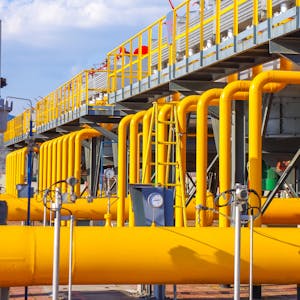Natural Gas
About this Course
This course will educate you in the characteristics and properties of natural gas, preparing you with the ability to summarize gas system components and new pipeline technologies. You will be enabled to grasp the key factors behind formation of the natural gas industry and the historical use of natural gas. Ultimately, you will be able to identify gas and carbon monoxide safety procedures. This course is for individuals considering a career in the energy field (who have a high school diploma, at minimum, and basic knowledge of mathematics), and existing energy sector employees with less than three years of experience who have not completed similar training and would benefit from a course of foundational industry concepts. Main concepts of this course will be delivered through lectures, readings, discussions and various videos. This is the second course in the Energy Production, Distribution & Safety specialization that explores various facets of the power sector, and features a culminating project involving creation of a roadmap to achieve a self-established, energy-related professional goal. To learn more about the specialization, check out a video overview atCreated by: The State University of New York

Related Online Courses
This specialization will provide aspiring and established songwriters with the strategies and practices to develop hit songs. The award-winning Berklee Songwriting Faculty have selected four... more
This Specialization introduces cybersecurity to novice software developers. It presents essential security concepts and how they apply to cloud deployments. Learners develop proficiency at... more
This specialization was developed for the mechanical or aerospace engineering advanced undergraduate graduate or graduate student who already has a strong background in undergraduate engineering... more
This comprehensive course on Selenium WebDriver with Java begins with a thorough introduction to Selenium\'s features and architecture. You\'ll start by setting up your environment, including Java... more
This course is for anyone passionate about learning how to develop FPGA-accelerated applications with SDAccel! The more general purpose you are, the more flexible you are and the more kinds of... more








